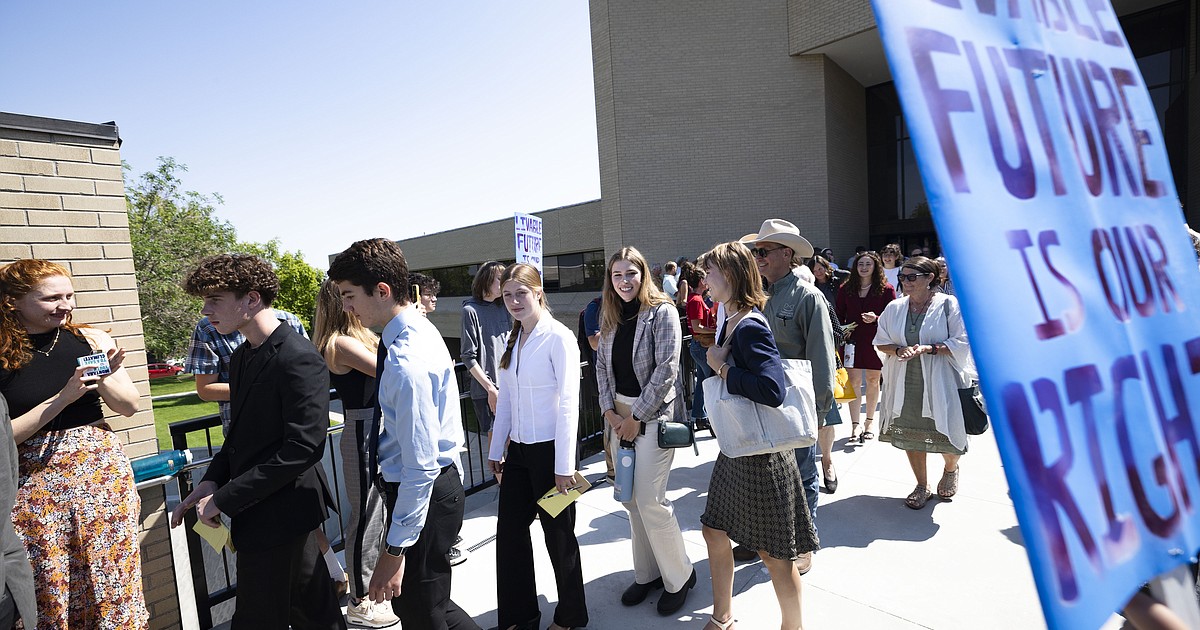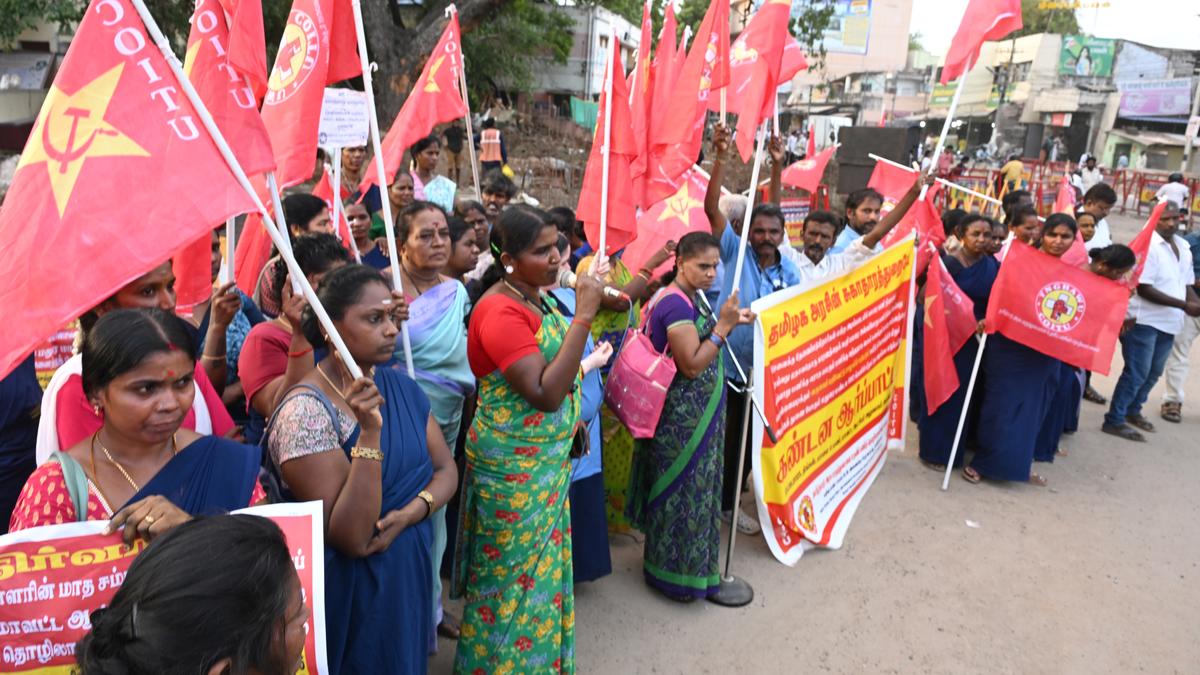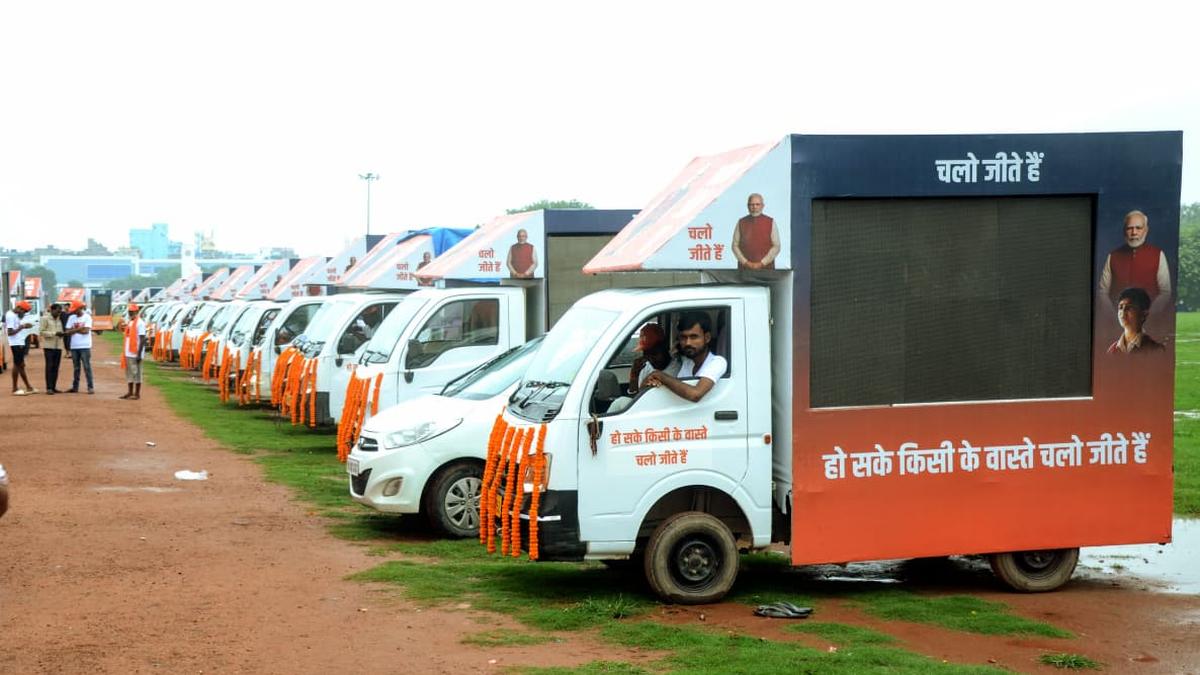
MISSOULA — Four of the youth plaintiffs challenging the Trump administration’s climate policies had their day in court Tuesday, telling a judge that climate change-fueled wildfires and extreme weather prevent them from living their lives the way they want to.
The testimony came alongside that from three expert witnesses who also took the stand during the first day of a hearing in federal district court in the Lighthiser v. Trump case, arguing the court should find Trump’s executive orders on energy issues unconstitutional and halt them. The plaintiffs seek a temporary block while the full case plays out on three orders aimed at boosting the coal industry and declaring a national energy emergency.
The youth ages 11 to 20 described damage to their physical and mental health from climate change-related wildfires, flooding and hurricanes, and said the executive branch’s efforts to “unleash” American energy will worsen pollution and other climate conditions.
Attorneys representing the federal government argued in their opening statement that U.S. District Court Judge Dana Christensen should dismiss the case because the plaintiffs are not entitled to ask the court to resolve an energy policy dispute by interpreting the Constitution to require a particular policy.
In May, 22 young Americans — 10 of whom were plaintiffs in the Held v. Montana constitutional climate lawsuit — sued the Trump administration to undo three executive orders they argue violate their Fifth Amendment rights to life and liberty. Tuesday was the first of a two-day hearing.
Joseph Lee, a 19-year-old California resident, told the court that wildfire smoke, extreme heat and humidity trigger his asthma. After being hospitalized due to a heat stroke in 2023, Lee said his lungs have been more sensitive and he is “terrified” to go outdoors in extreme heat. Lee said he struggles with anxiety related to the climate, wildfires and safety.
“It prevents me from going outdoors and really pursuing things I want to do in nature,” he said.
In her testimony, 17-year-old Livingston resident Jorja M., whose last name is not part of the court record, said climate change has shortened winter ski seasons and increased the number of wildfires and smoke in the area. Jorja said she is concerned about the health effects of breathing in wildfire smoke. She also described how severe flooding in 2022 blocked the road near her family’s veterinary clinic.
Avery McRae, 20, from Oregon, similarly described worsening wildfires and smoke, as well as the experience of evacuating from hurricanes while attending college in Florida. McRae said she has a hard time picturing any location she would feel completely safe from climate-related disasters and, as an environmental studies major, she said she is unsure what a future career looks like. When asked how she would feel if the wildfire season gets longer, McRae said her “general sense of despair would increase.”
“I already feel anxious,” she said. “Wildfires are scary. The more of them there are, the more anxious and defeated I’ll feel.”
McRae was also a plaintiff in the Juliana v. United States lawsuit, a federal constitutional climate case that concluded earlier this year in the government’s favor.
Federal attorney Michael Sawyer, speaking in defense of the Trump administration, said this case is trying to deal with “fundamentally the same claim” as the Juliana case.
Julia Olson, an attorney with Our Children’s Trust representing the plaintiffs, said this case is different because it is not asking the government to prepare a plan to reduce emissions and curb climate change, but is asking to stop three executive orders.
In his testimony, Steven Running, a climate science researcher, described how scientists have tracked increasing carbon emissions and said every ton of carbon dioxide emissions adds to climate change.
“It’s clear to us scientifically now that the warming trend that we’re experiencing and emission trend is a continuum,” he said. “There isn’t a safe level where we’re OK up til now then things fall apart. Literally every additional ton matters to the whole world and definitely matters to these plaintiffs.”
John Podesta, an adviser on climate policy and clean energy in the Biden administration, described how executive orders are processed. Podesta, who worked for Biden during the Juliana case, said while the administration viewed that request as “unworkable,” this case is asking for a direct remedy.
“These kids are being harmed by this action and this court can do something about that,” he said.
Attorneys representing the federal government said each new presidential administration can reconsider the previous administration’s regulations and that it’s inappropriate for the court to intervene before that process is complete.
“When those agencies issue final decisions, those will be subject to judicial review in courts of appeal,” Sawyer said. “That is the proper forum.”
Montana Attorney General Austin Knudsen, along with 18 other states and Guam, in July filed a motion supporting the federal government’s request to dismiss the case because they have “significant property and economic interests in this matter.” Attorneys representing the state did not speak during Tuesday’s hearing.
Continuing witness testimony and oral arguments are set for Wednesday.
Amanda Eggert contributed reporting.



